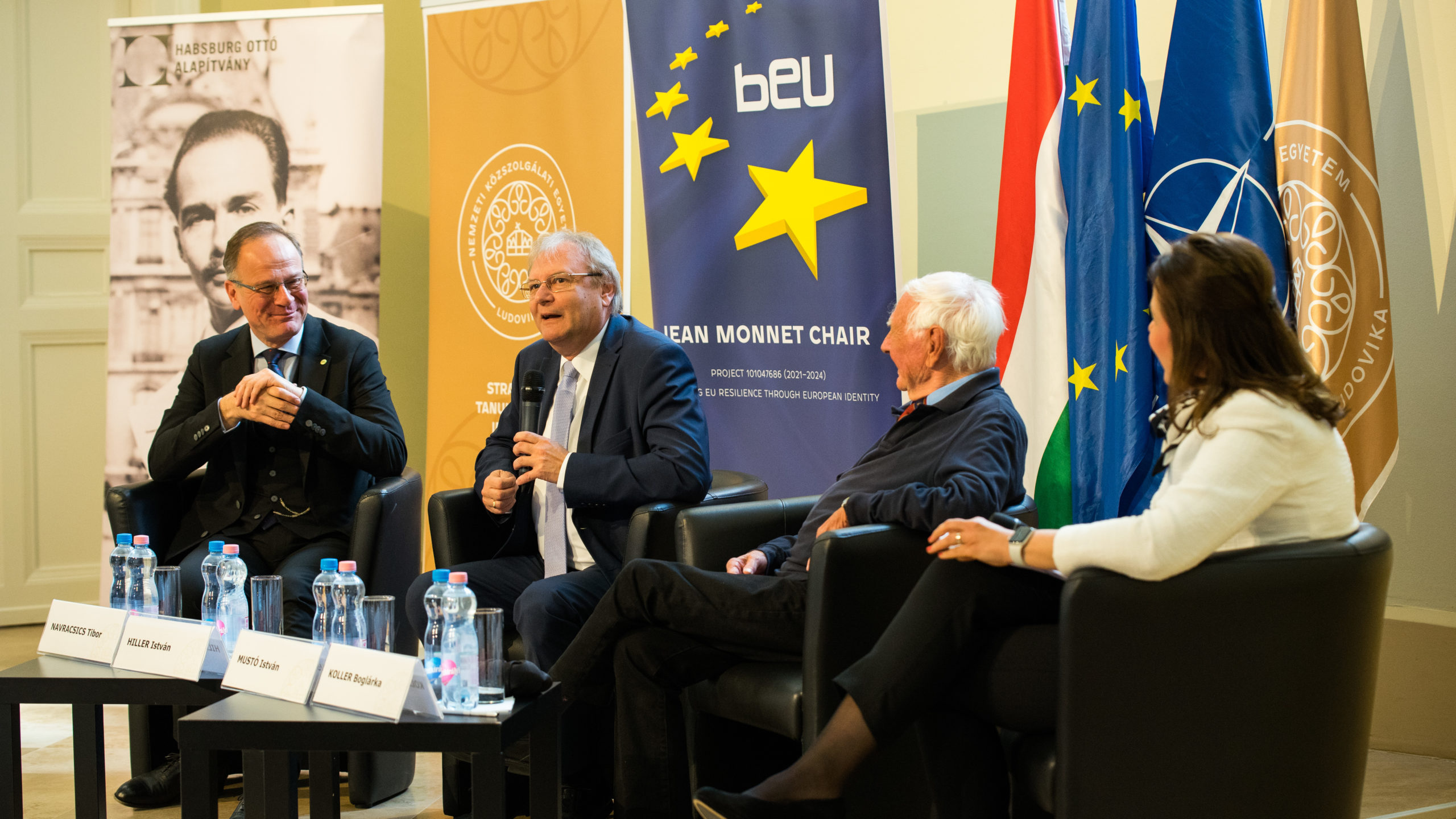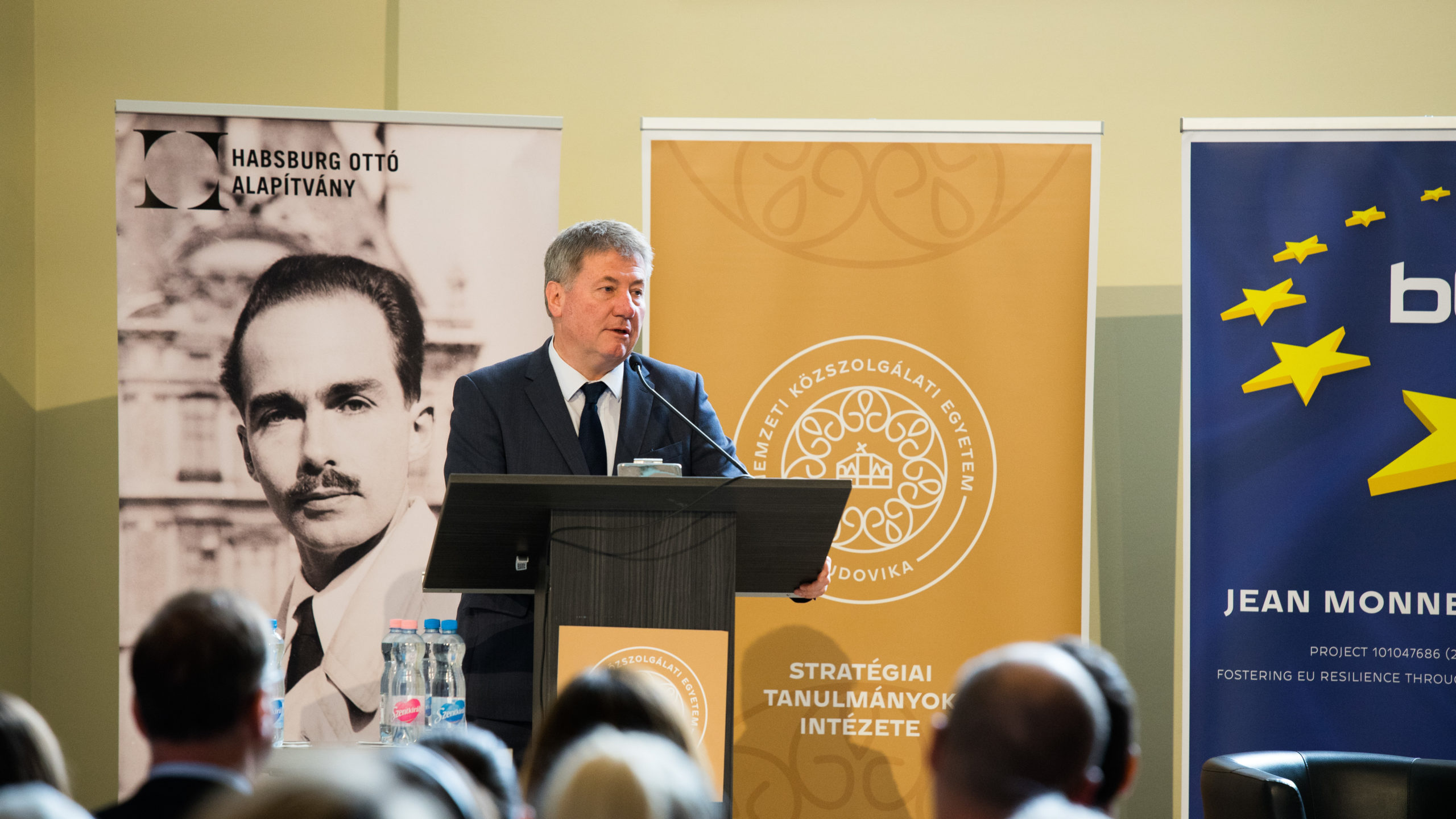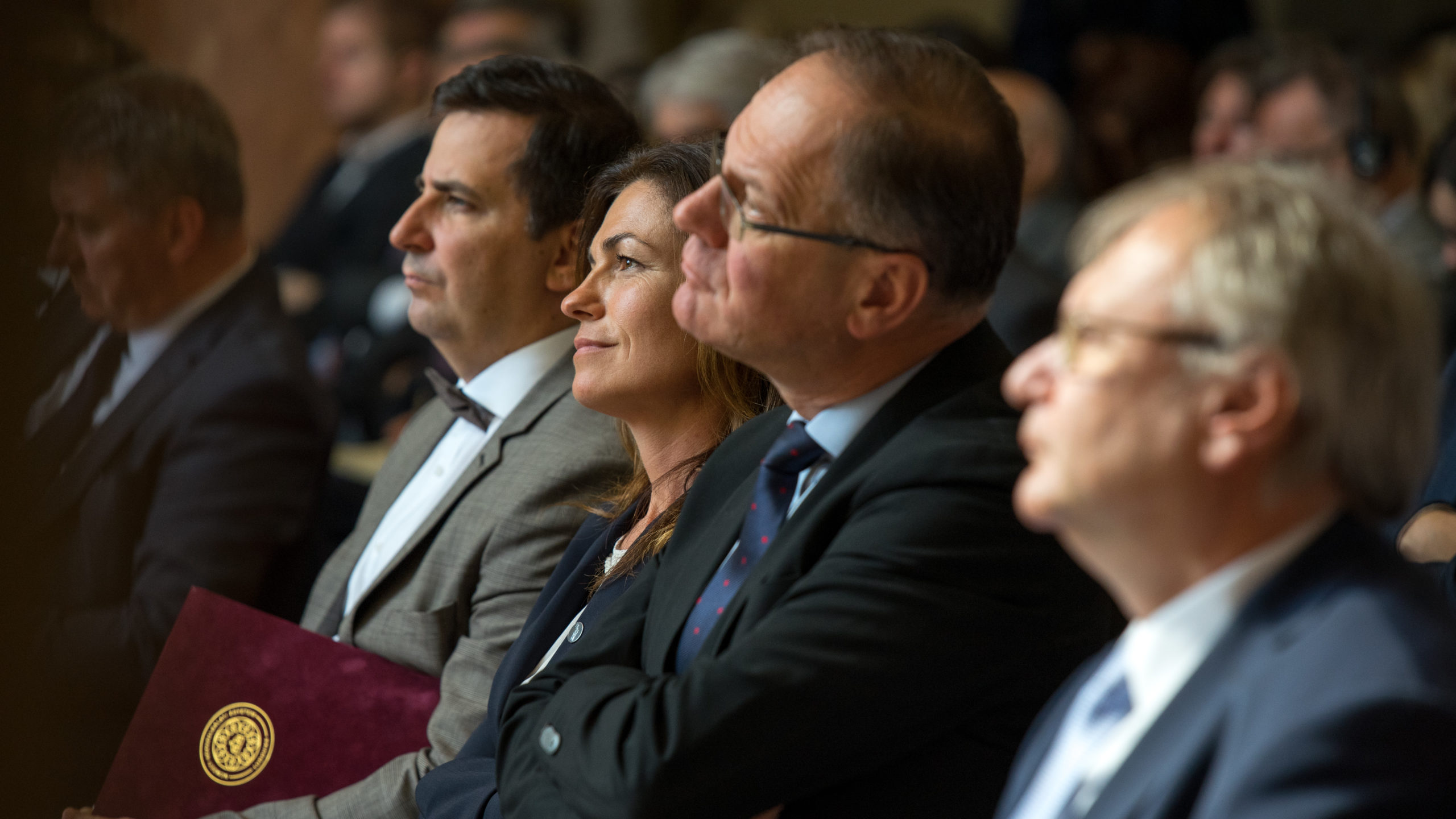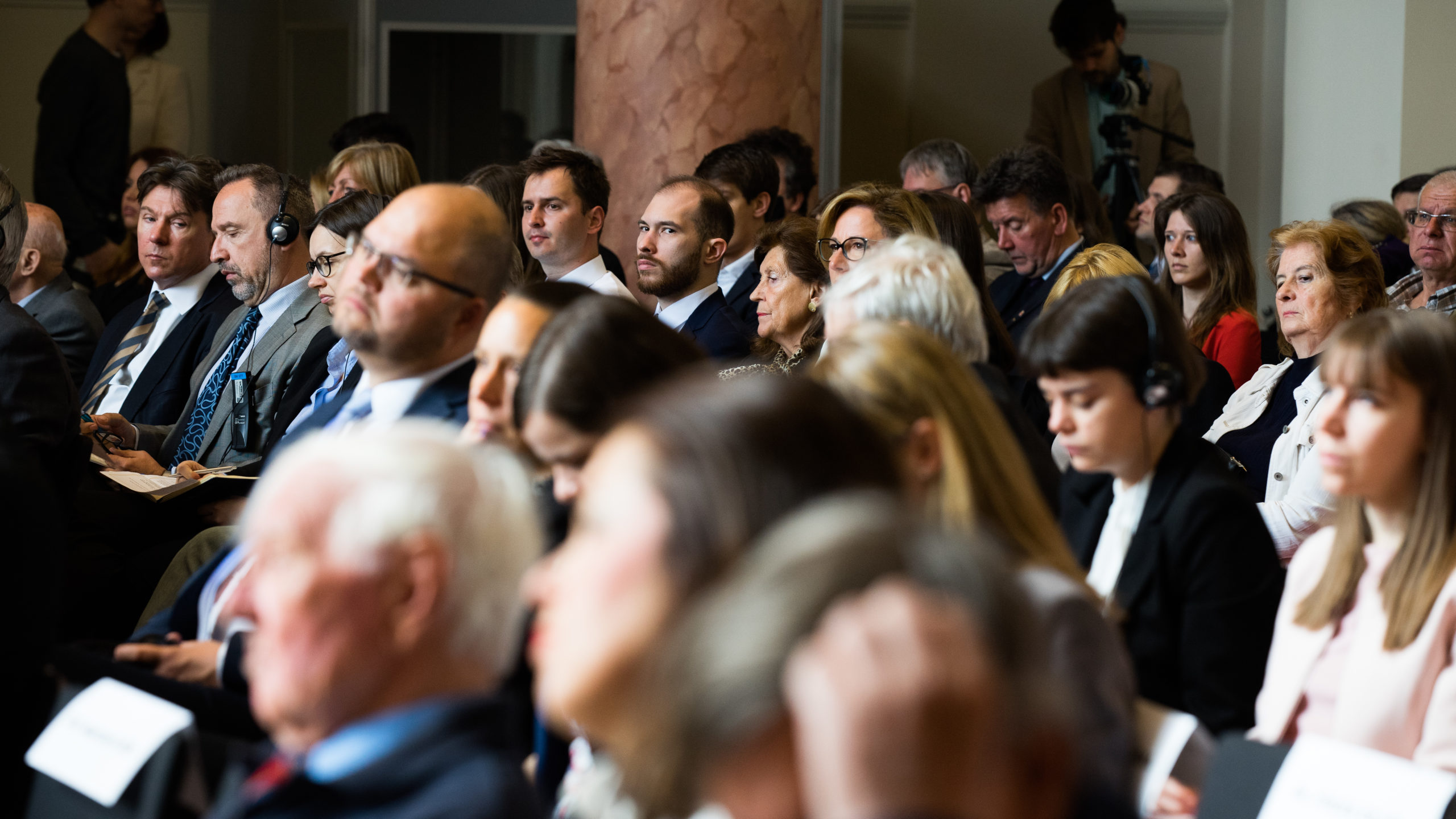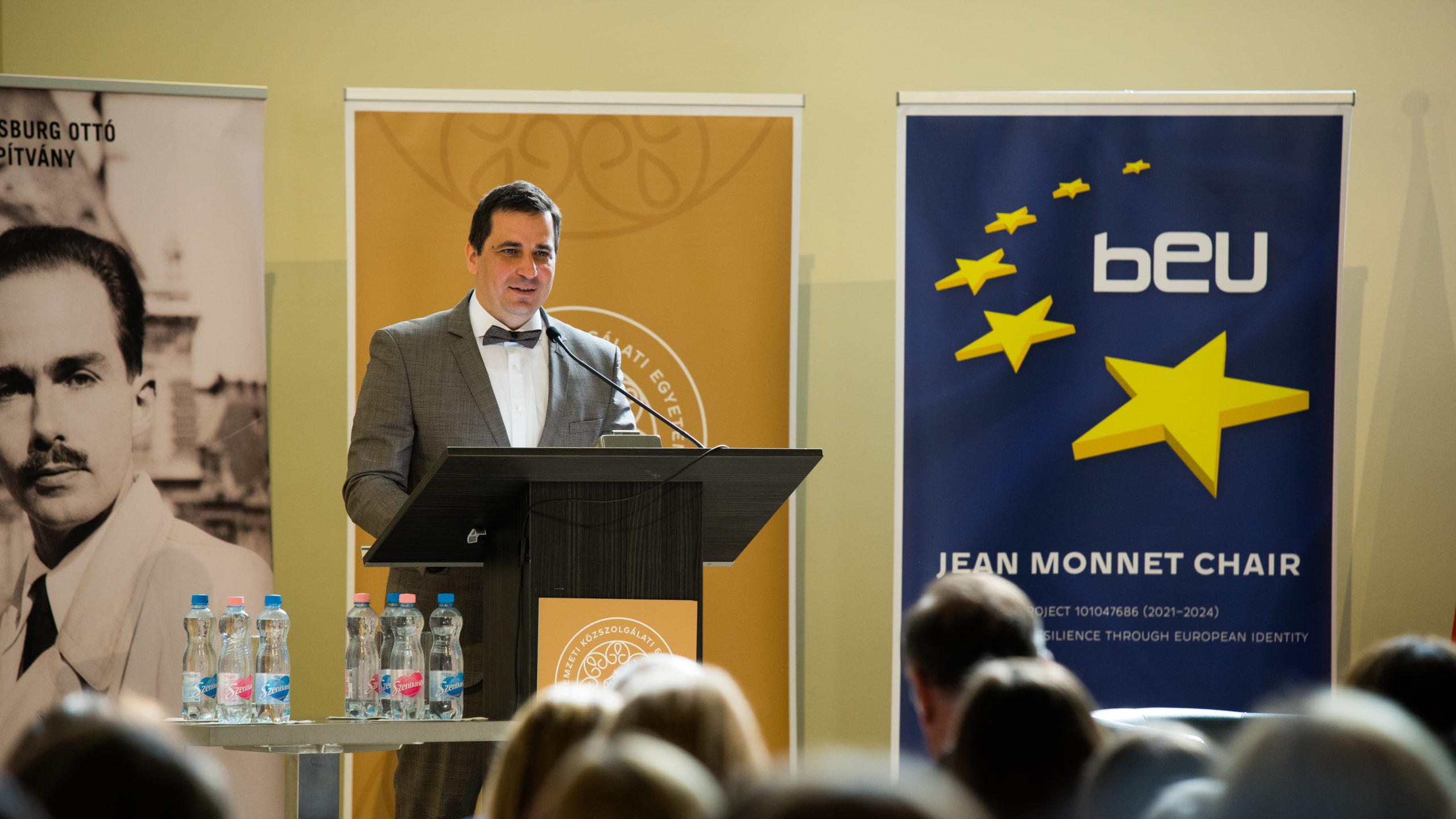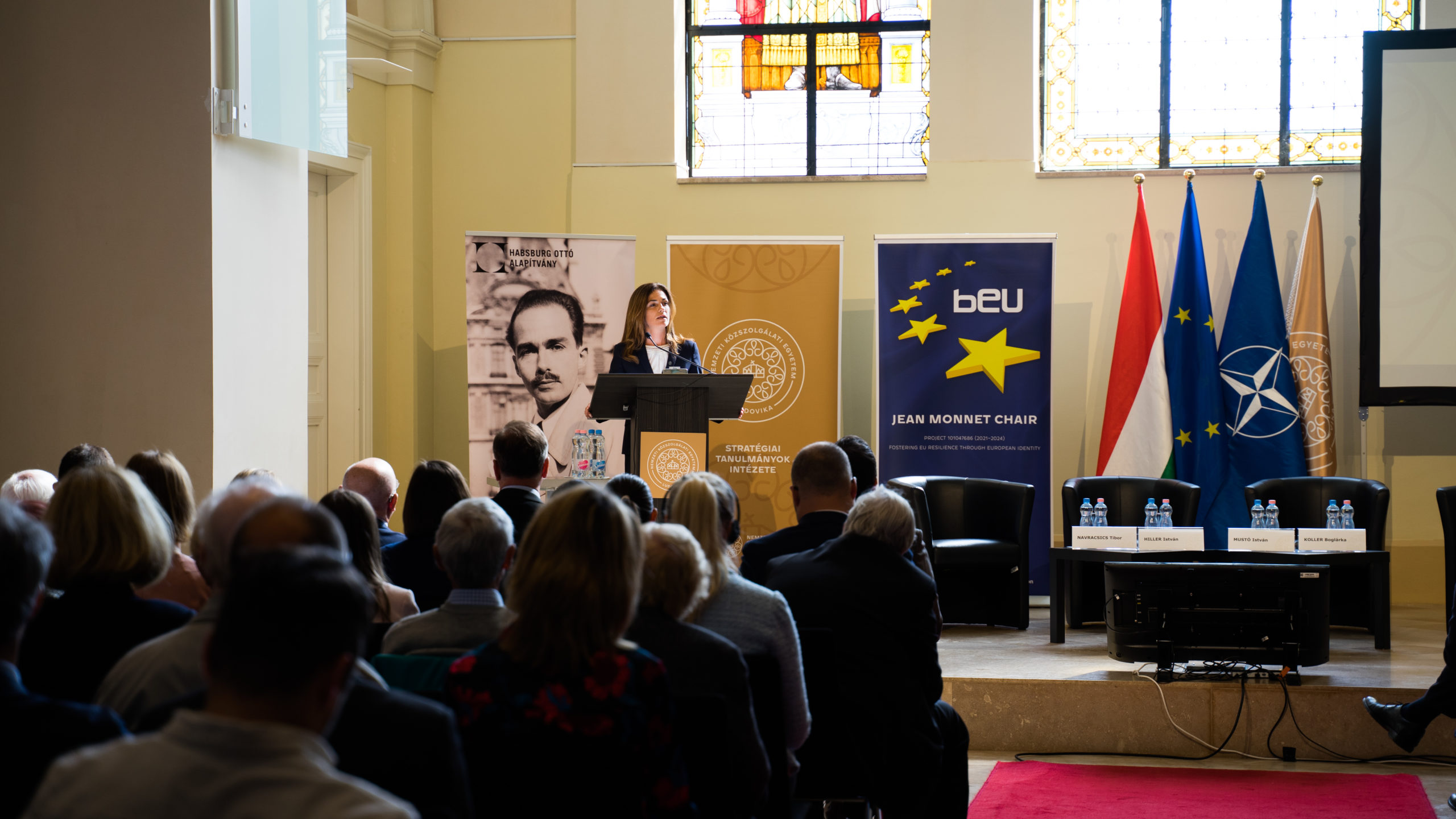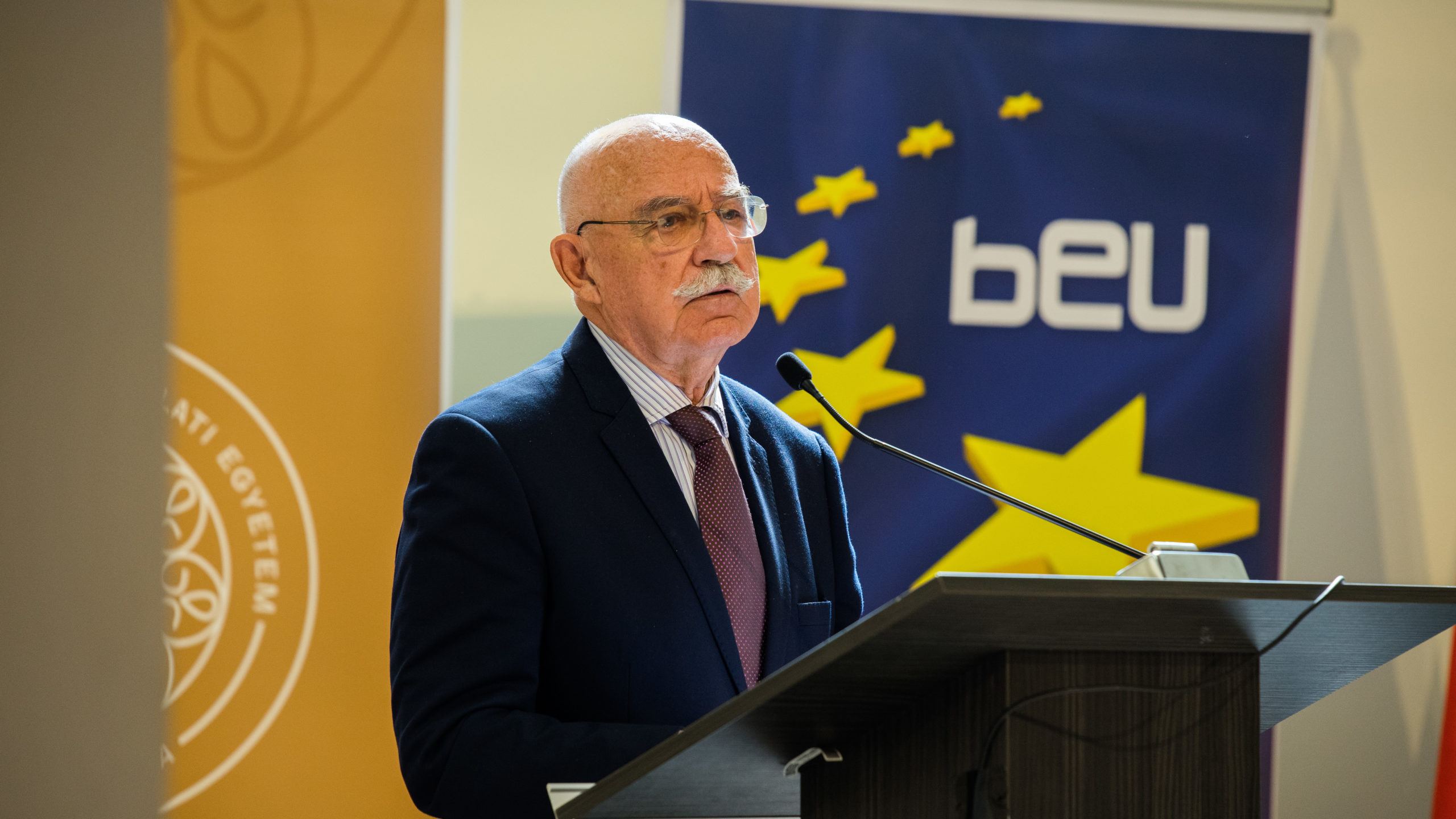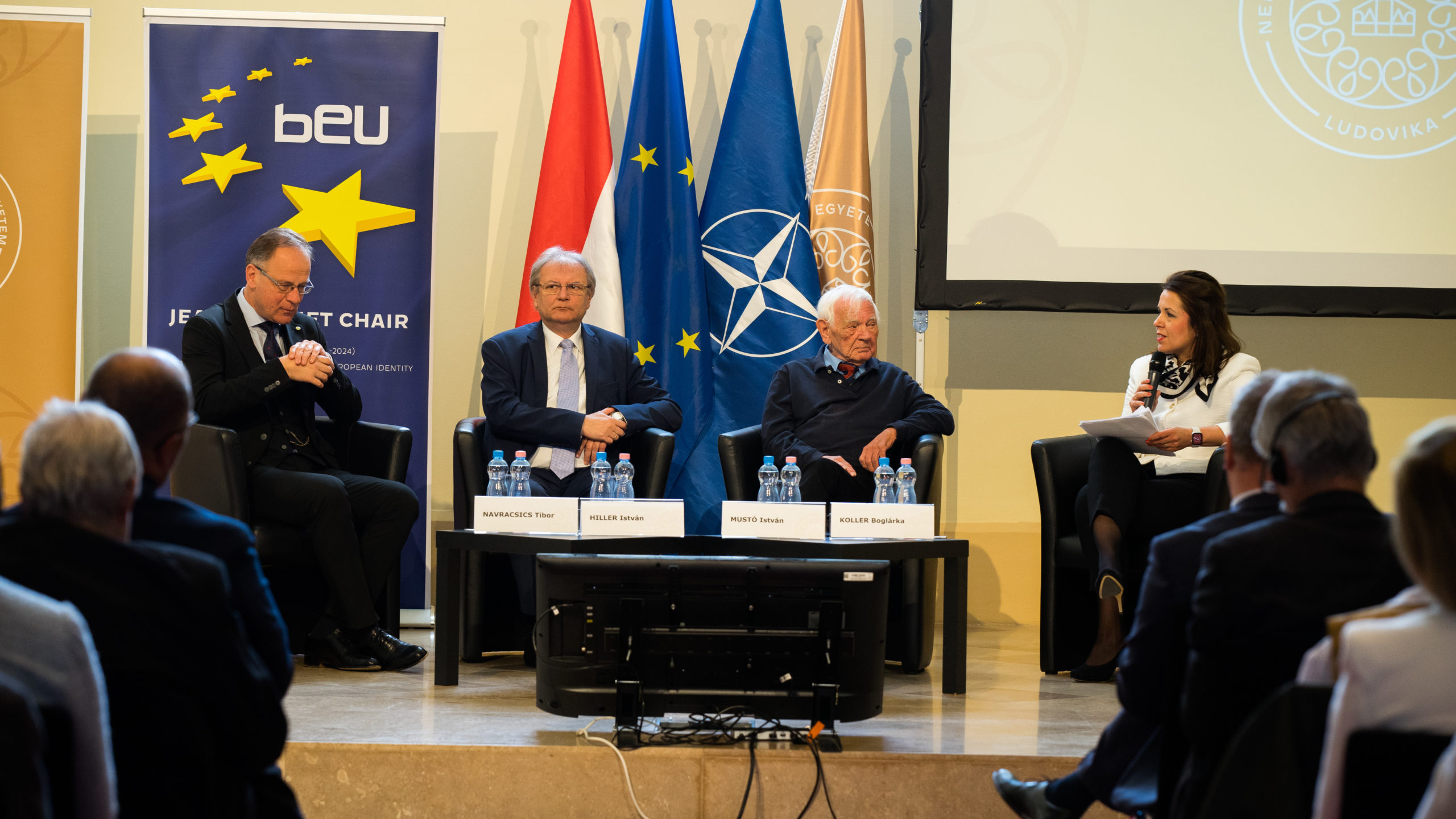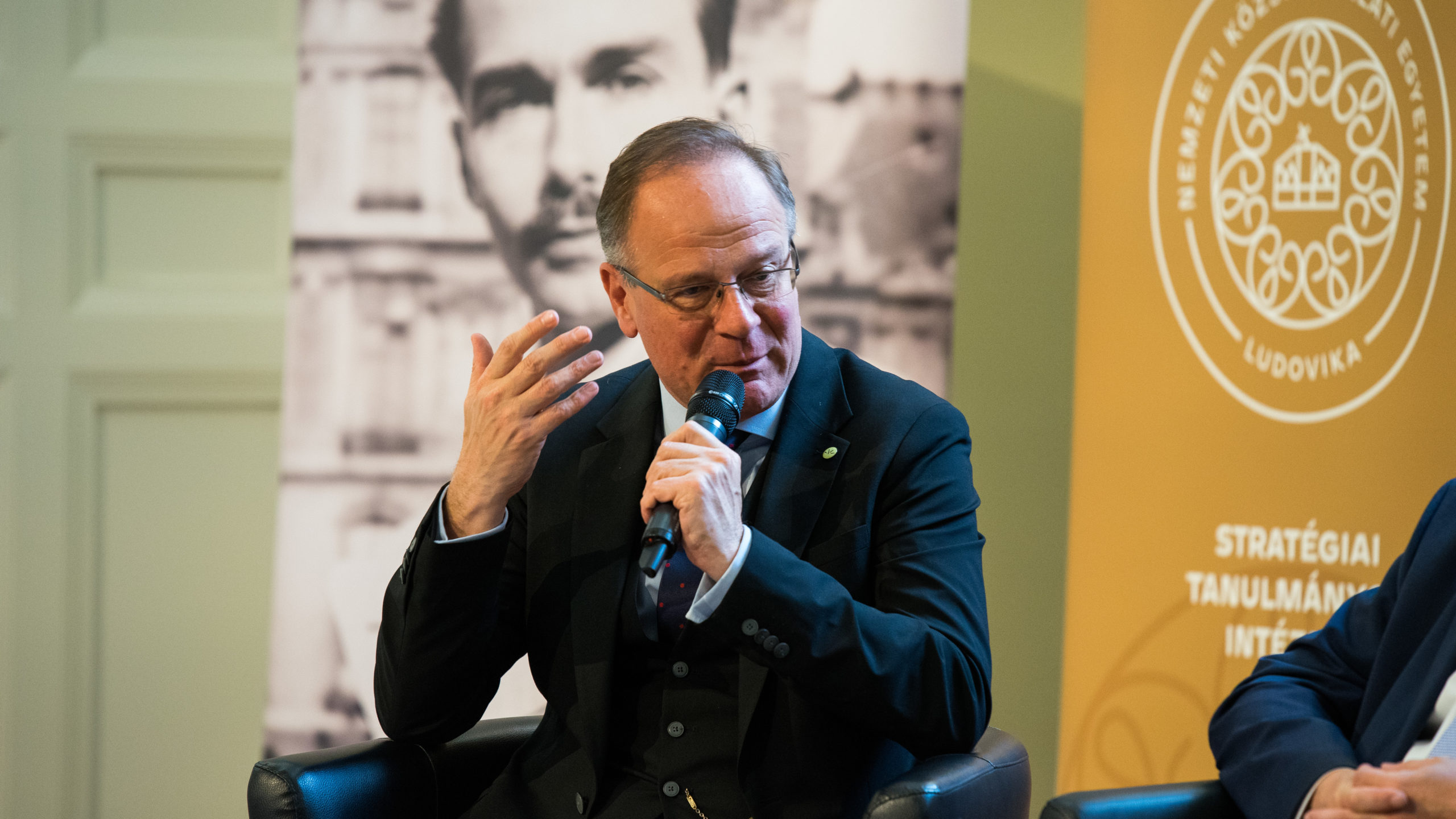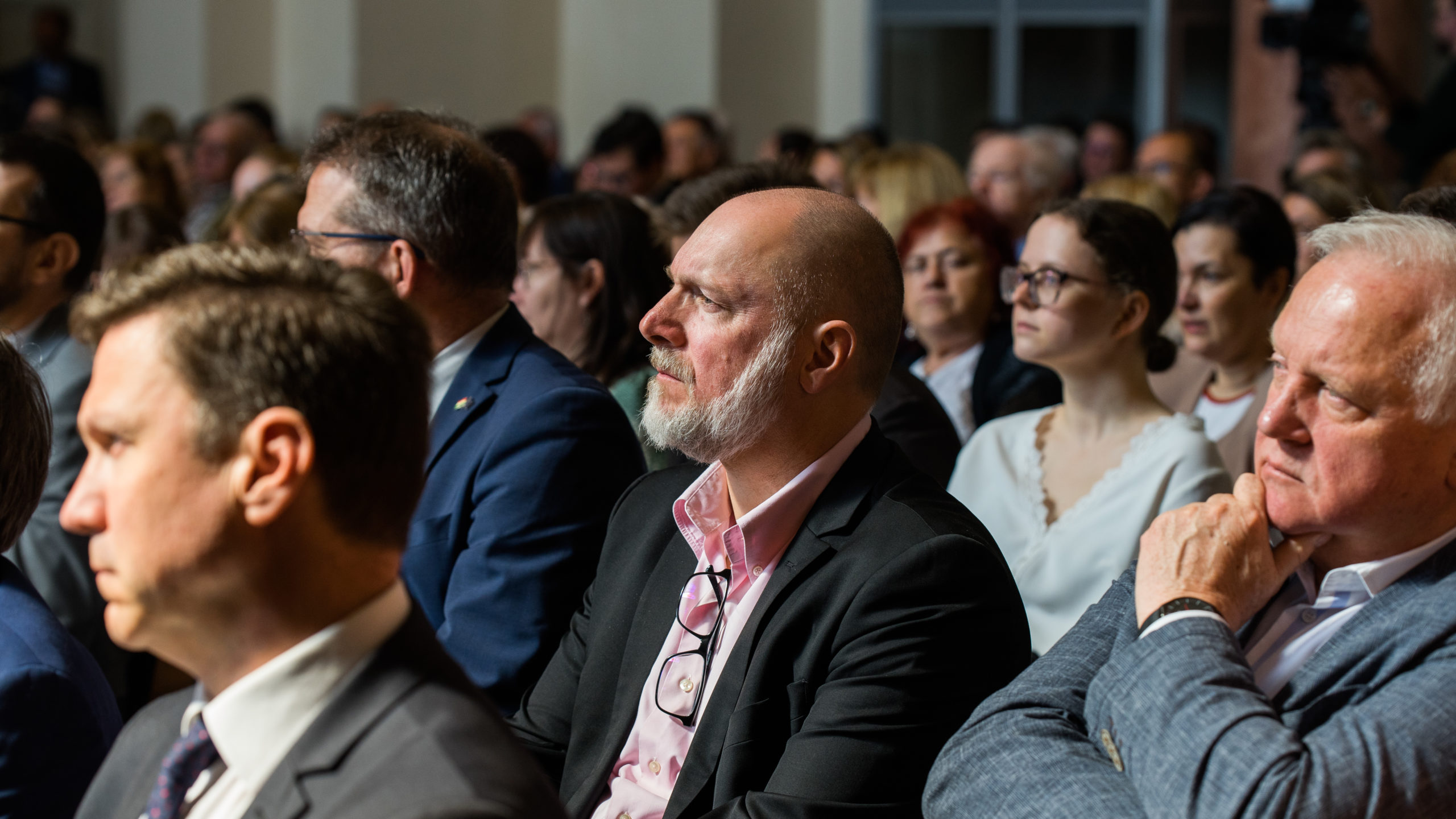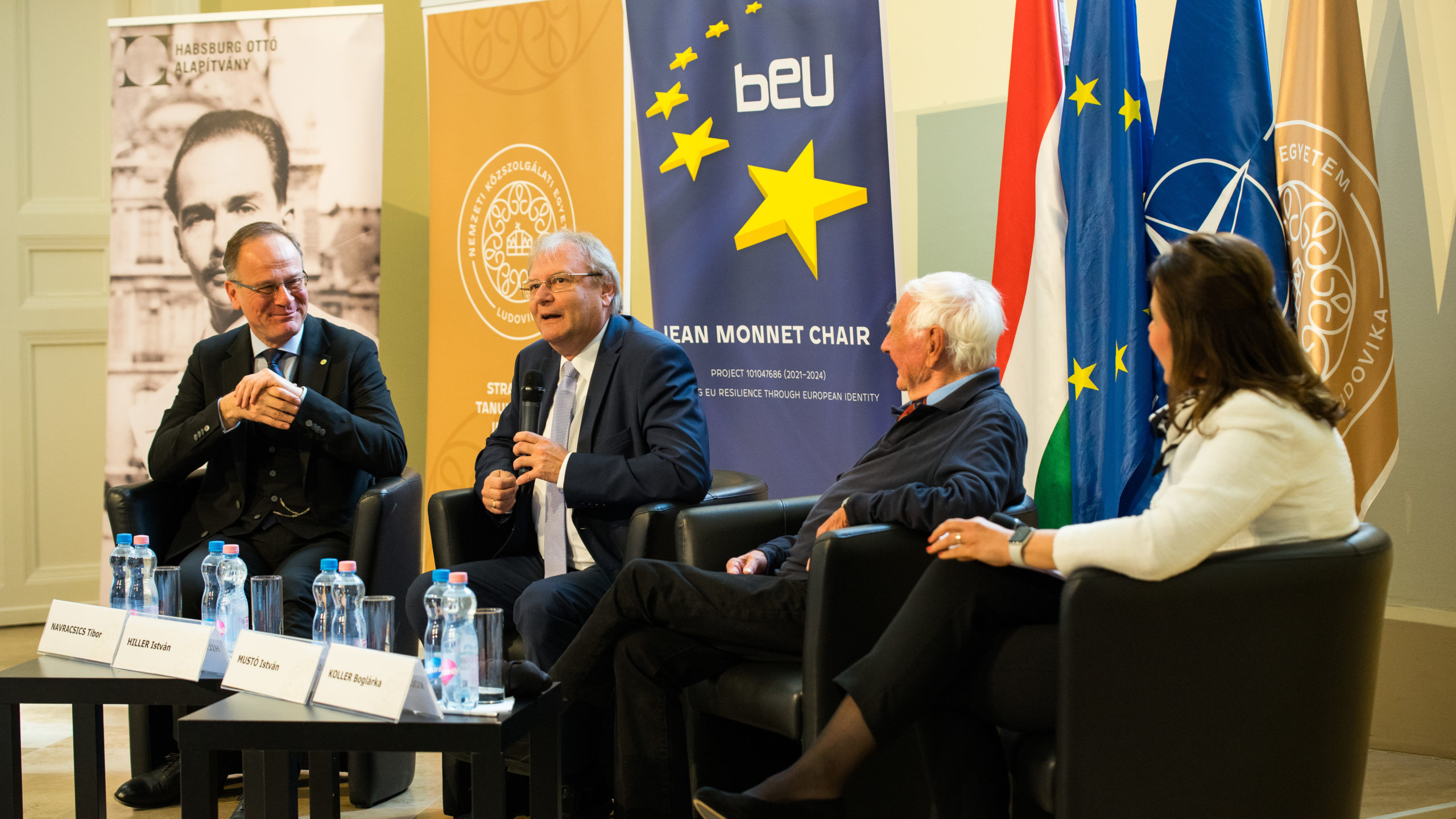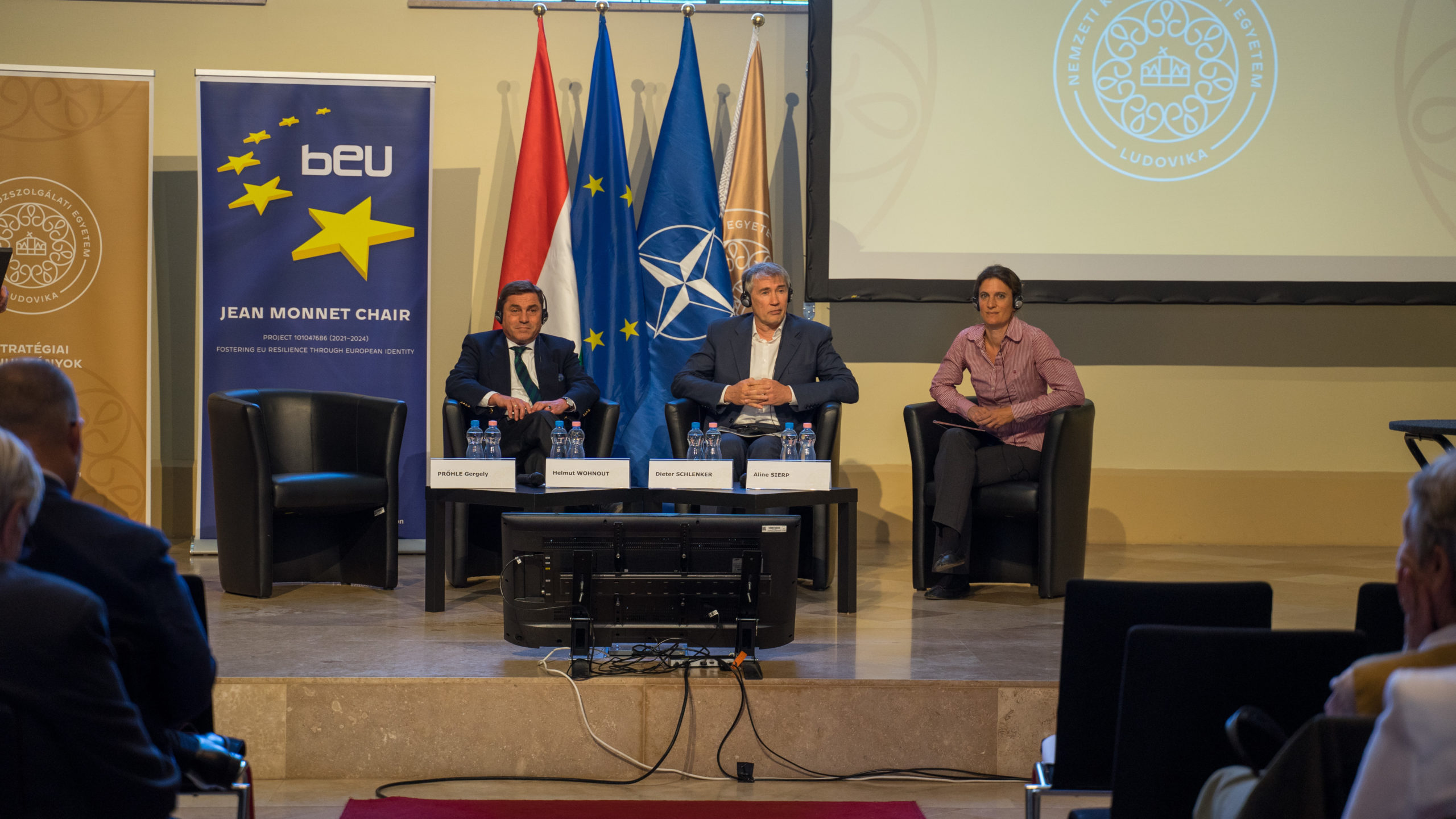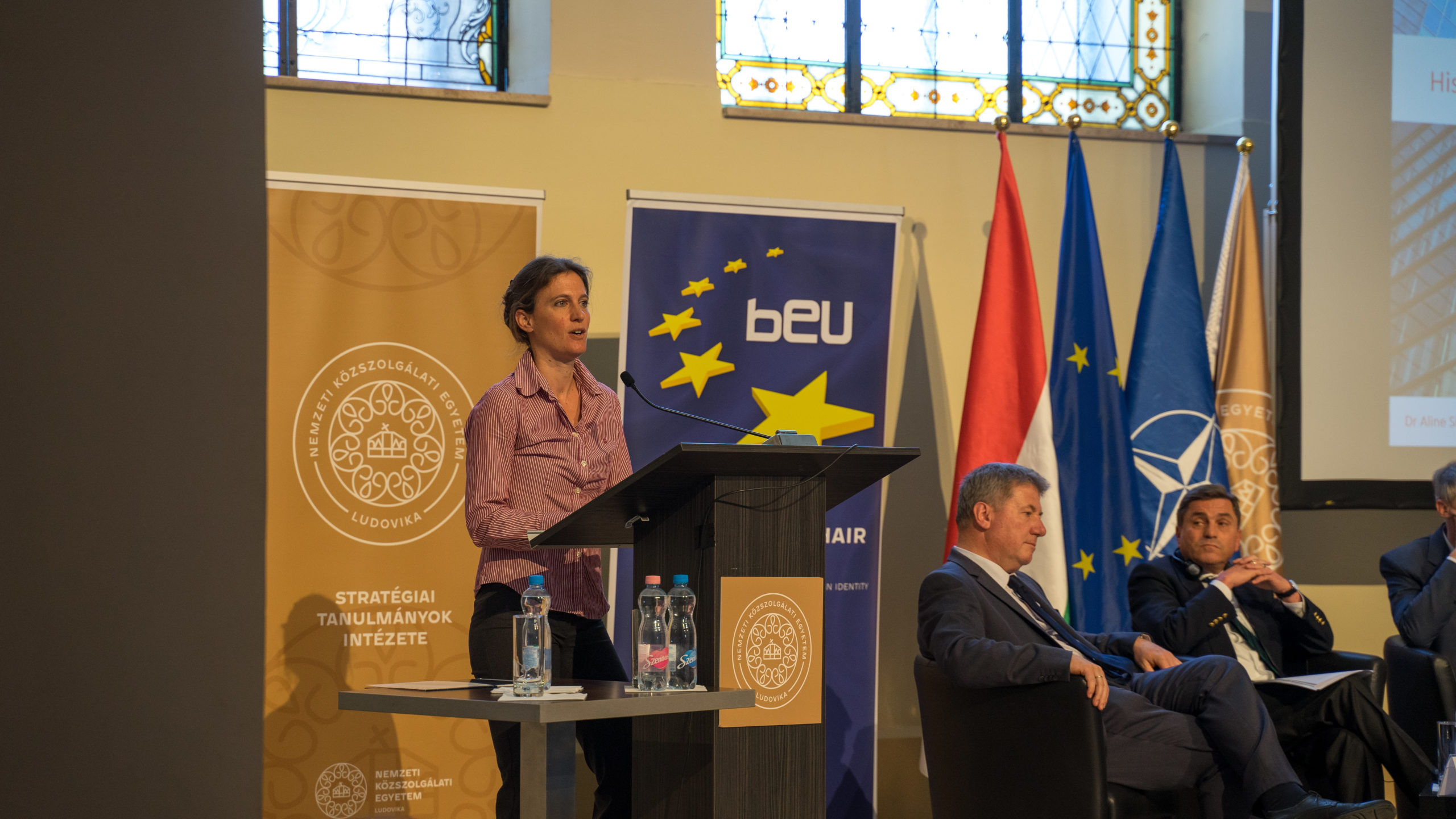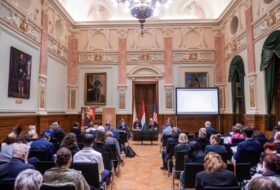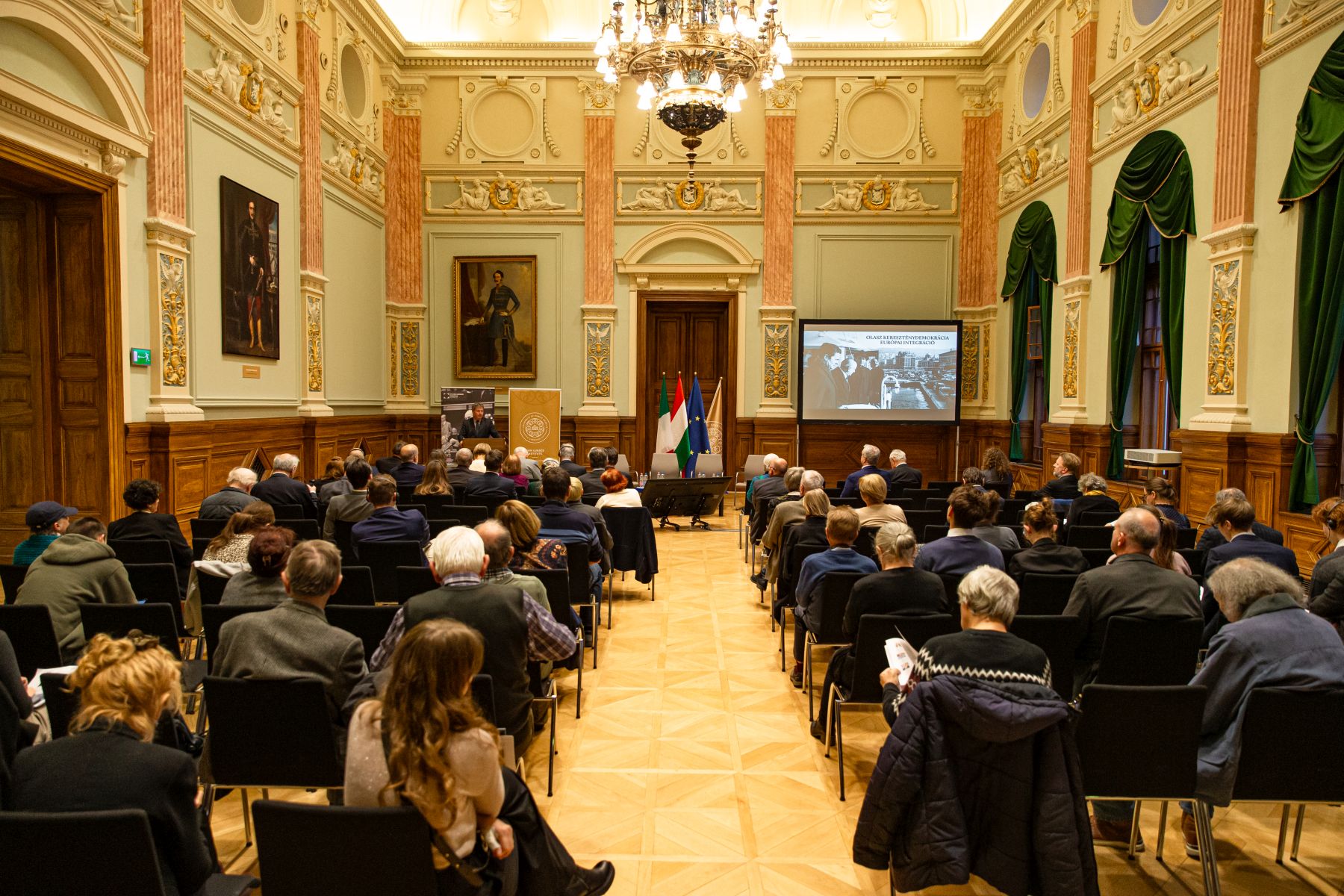GERGELY PRŐHLE, Director of our Foundation and the Institute for Strategic Studies of the University of Public Service (NKE), greeted the audience. He explained the choice of the theme of the conference with a quote from Otto von Habsburg’s book Damals begann unsere Zukunft (When the Future Began): “It is only by seeing clearly, by knowing the road we have travelled, that we can focus on what lies ahead and for which we must be prepared. Nothing is more irresponsible than being surprised by historical events. The biblical parable of the wise and the foolish virgins can also be applied to the lives of certain peoples and nations. There is a wealth of experience available to help us develop the right policy for Europe, which, with the right creativity, can be put to good use if we seek to find out what is to come.” He considered it fateful that the conference had to be moved from the Széchenyi Hall to the St. László Chapel to accommodate the enlarged number of attendees. He reminded that the idea of the unification of the Union has its roots in Christianity and is accompanied by sacred symbols: the Treaty of Rome was signed in the shadow of an early Christian Basilica at the foot of the Capitoline hill, the Lisbon Treaty was sealed in the monastery of St Jerome, and the 12-star sky-blue flag is an attribute of the Virgin Mary in Christian iconography.
In his welcome speech, GERGELY DELI, Rector of the NKE, expressed their pride in the institution’s wide range of EU vocational training and its network of 42 European universities, which provides students with extensive support for their public service careers.
“Europe will be Christian or it will not be.” – JUDIT VARGA quoted Robert Schuman. The Hungarian Minister of Justice stressed the government’s commitment to Christian values, and called the Hungarian EU Presidency in the second half of 2024 an unmissable opportunity to present the results of the social policies of recent years as a viable alternative for the EU’s nations. She said that the treaties on which European integration is established are based on the principle of consensus, not on the imposition of compliance. The experience of 20 years of EU membership next year provides us with valuable insights to share with the community. The Minister is pleased with the pace of preparation, in which she sees a vital role for the new generation. A generation that has grown up in an EU Member State, to whose we must listen to and engage in dialogue; and whose finest will be able to participate for the fourth year in a joint career programme of the NKE and the Ministry of Justice, called “Europe of Nations”. Equipped with Hungarian aptitude and creativity, we can advance the European “Unity in Diversity” ideal by embracing our identity.
The exposition of JÁNOS MARTONYI, former Minister of Foreign Affairs, was committed to raising questions: his historical, legal and political statements, which were worthy of further reflection, pointed out the principles, causes, nature and consequences of integration, its creation, development and crisis phenomena, offering the invited speakers the opportunity to freely relate to what was conveyed.
The panel discussion following the keynote lecture was dominated by the speakers’ diverse political views and disciplinary interests: lawyers, economists, political scientists and historians who have spent longer or shorter periods of time in public life and have also had significant academic careers. In response to a question by BOGLÁRKA KOLLER, Deputy International Rector of the NKE, on the integration of the Central European region, ISTVÁN HILLER gave a historical perspective. In his view, what happened after 1990 was merely a restoration of the natural order; the kind of spiritual identity that emerged in the early modern period as Respublica Christiana, shaped by a humanist mentality and culture of behaviour, had made the Western and Central regions of Europe inseparable over the centuries. Politics has a duty to serve this ethos because it leads to integration. TIBOR NAVRACSICS, Minister for Regional Development and EU funds, recalled that most Western nations see the accession of the countries of Central Europe as a challenge to their comfort zone. However, they cannot spare themselves the work of understanding because the future of integration depends on it. ISTVÁN MUSTÓ pointed to global political processes behind the current situation. The former member of the post-war Hungarian parliament, who returned from a long period of emigration to the West, said that since 1990 the United States had gone from being a reliable ally to an unreliable hegemon and that although the Soviet Union had disappeared, the threat of the Eastern empire remained with us in a new form. Furthermore, China’s emergence on the international political stage is fundamentally reshaping the balance of power at the global level.
As far as Europe is concerned, Mustó believes that the ongoing enlargement is, in some ways, weakening integration; as the process advances, increasingly deep political, economic and cultural dividing lines will separate countries and regions. When asked about the impact of the Russian-Ukrainian war on European integration, the historian said that the conflict must be brought to an end as soon as possible but that the only way to settle it is pax optima rerum (peace is the greatest good); otherwise, we will soon have to face consequences similar to the “vile” treaties of Paris that ended the First World War. Navracsics identified the guarantee of lasting peace in the system that is organised around it. The history of the European Union, he said, is one of an unprecedented success story of peace, of which enlargement is an essential element – as evidenced by the handling of the crisis in South Slavic and as can be predicted for the post-Soviet space. All this, of course, has repercussions for the Union itself.
What do the discussants see as the way out of the current crisis? According to István Hiller, everything that has made Europe prosperous and hegemonic over the past 500 years is a thing of the past, and the world seems to be returning to the previous trend, where the East will once again be the engine of change. What is needed is not a single spectacular decision but carefully planned and executed processes and concerted joint work to bring back the successes of the past. To draw the lessons, we must also be able to face up to the negatives, such as Brexit.
We are living through the painful years of the formation of a new system, Navracsics said, and in order to assess the process, we have to wait and see how it develops. The politician expressed that the biggest problem in the current state of integration on the continent is the deficit of democracy, as most of the decisions taken by the EU institutions lack the legitimacy of the political community – the European demos.
ALINE SIERP’s presentation was about the impact of historical experience in shaping attitudes towards integration. The professor of the University of Maastricht outlined how the EU has moved from the symbolic politicisation of the 1950s to the creation of a teleological narrative in the 1970s to a fact-finding approach to the end of the Cold War, which includes both the ability to confront the Holocaust and the totalitarian regimes of this century. According to Sierp, the Koselleckian approach has since become dominant, questioning the legitimacy of collective memory and instead speaking of collective conditions of memory.
DIETER SCHLENKER, Director of the Historical Archives of the European Union, spoke about the role of the Florence Archives in the administration and decision-making mechanisms of the EU institutions and how they support scientific research and shape the collective memory of European citizens.
The closing lecture of the conference was an overview by HELMUT WOHNOUT, Director General of the Austrian State Archives, of the half-century journey of his country towards EU integration. He focused on the content of the neutrality enshrined in the State Treaty and the agreement on minority policy for the German-speaking population of South Tyrol, which led to an exemplary solution to the decades-long conflict.
During the day, the audience heard excellent presentations, which contributed to a broad understanding of the political, social and religious situation of our times.
We look forward to a similar quality of exchange at our conference on 26 May, in honour of Henry A. Kissinger’s 100th birthday.
We thank our speakers and guests for their participation!
Written by Ferenc Vasbányai
Photos by Katinka Halápi (NKE)
